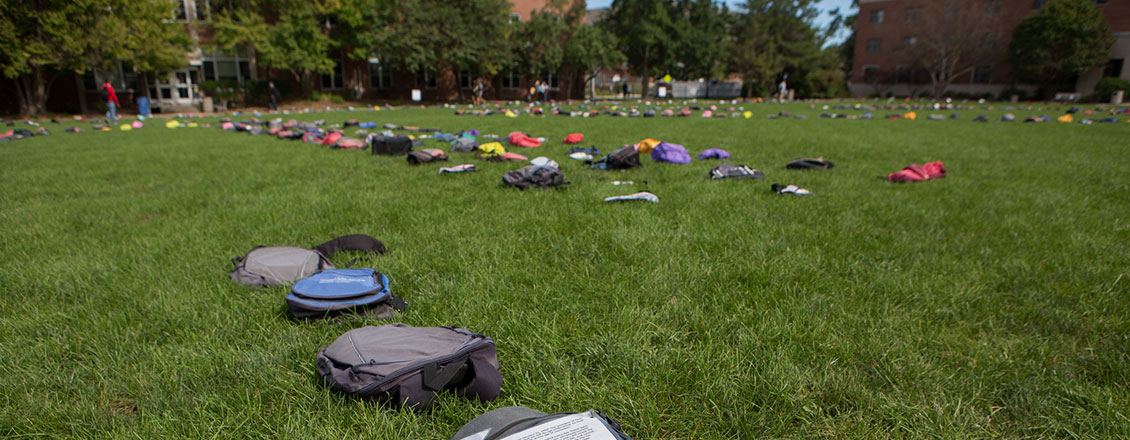
Training Opportunities
The Department of Counseling & Psychological Services (CAPS) at is excited to offer a graduate level training program aimed at training masters- and doctoral-level graduate students to provide professional psychological services in a university setting.
The CAPS Training Program accepts students from regional master's and doctoral level programs seeking a formal training experience to fulfill required clinical hours.
Clinical Training Opportunities
Intake
Trainees participate in initial intake assessments of students. The intake session offers the trainee a range of experiences, including assessing student risk, conducting bio-psycho-social assessments and creating diagnostic impressions of a student’s concerns.
Individual Counseling
CAPS offers trainees the opportunity to conduct counseling with a diverse student population. Student issues cover a variety of concerns (e.g., depression, homesickness, anxiety, etc.) and psychological severity. Practicum students typically meet with 10 to 12 individual clients weekly.
Group Therapy
Trainees can participate as an observer or co-facilitator for group counseling. An observer serves as the objective observer of group therapy content and process, as the record keeper of group events, and participates in group process with the co-facilitators after a group session. A co-facilitator shares the role of group counselor with a staff counselor at the center. The co-facilitator utilizes the counseling skills unique to group therapy and typically shares the responsibility of planning, forming, and conducting group counseling with the staff counselor.
Outreach
Trainees are encouraged to become involved in multiple aspects of outreach programming from planning to implementation of presentations for various departments on campus.
Crisis Intervention
College is often a stressful and difficult time for young people and crisis situations often arise. Trainees have the opportunity to work with students in crisis, deliver crisis risk assessments and provide co-counseling with other staff members.
Consultation
Practicum students have the opportunity to consult with private professionals and various members of the campus community.
Professional Development
Supervision
Each trainee receives a minimum of one hour of individual supervision and one hour of group supervision weekly. Supervision focuses on supervisee’s goals and growth areas (e.g., note writing, assessment interpretation) and aims to enhance multiple aspects of counseling work (e.g., conceptualization and treatment planning) and professional development. Supervisors review video/audio-taped clinical sessions as well as provide formative and summative evaluations.
Case Presentations
Trainees participate in case presentations and are encouraged to engage in dialogue and receive feedback from peers and supervisors.
Contact Us
Contact Information
- Campus Address
- Sycamore Suites, Lower Level, 023
- Phone:
- (570) 422-3277
- Fax:
- (570) 422-3042 (Fax)
- Title of Department Leader
- Director, Counseling & Psychological Services
- Name
- Jennifer Young
- E:
- jyoung@esu.edu



